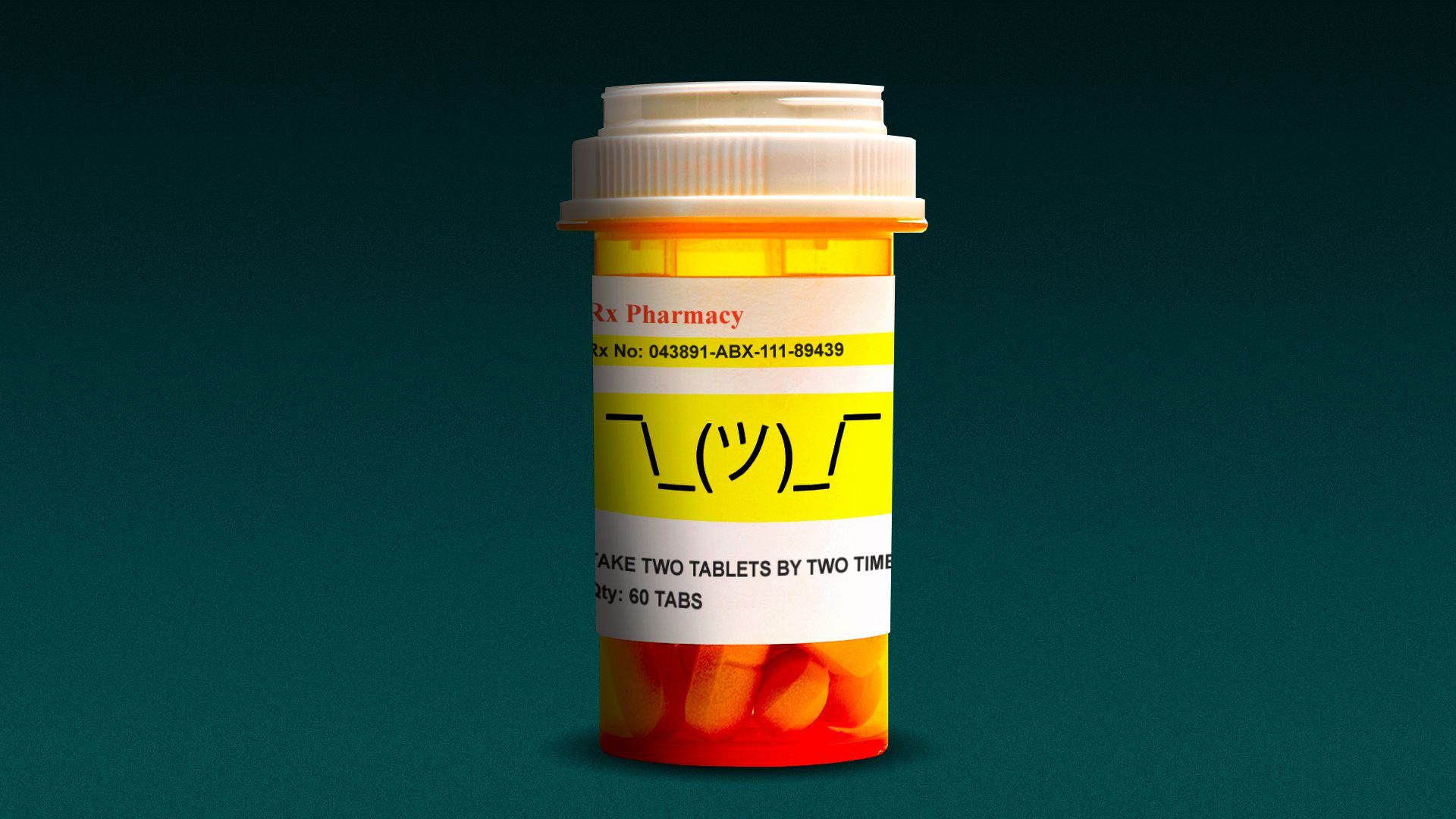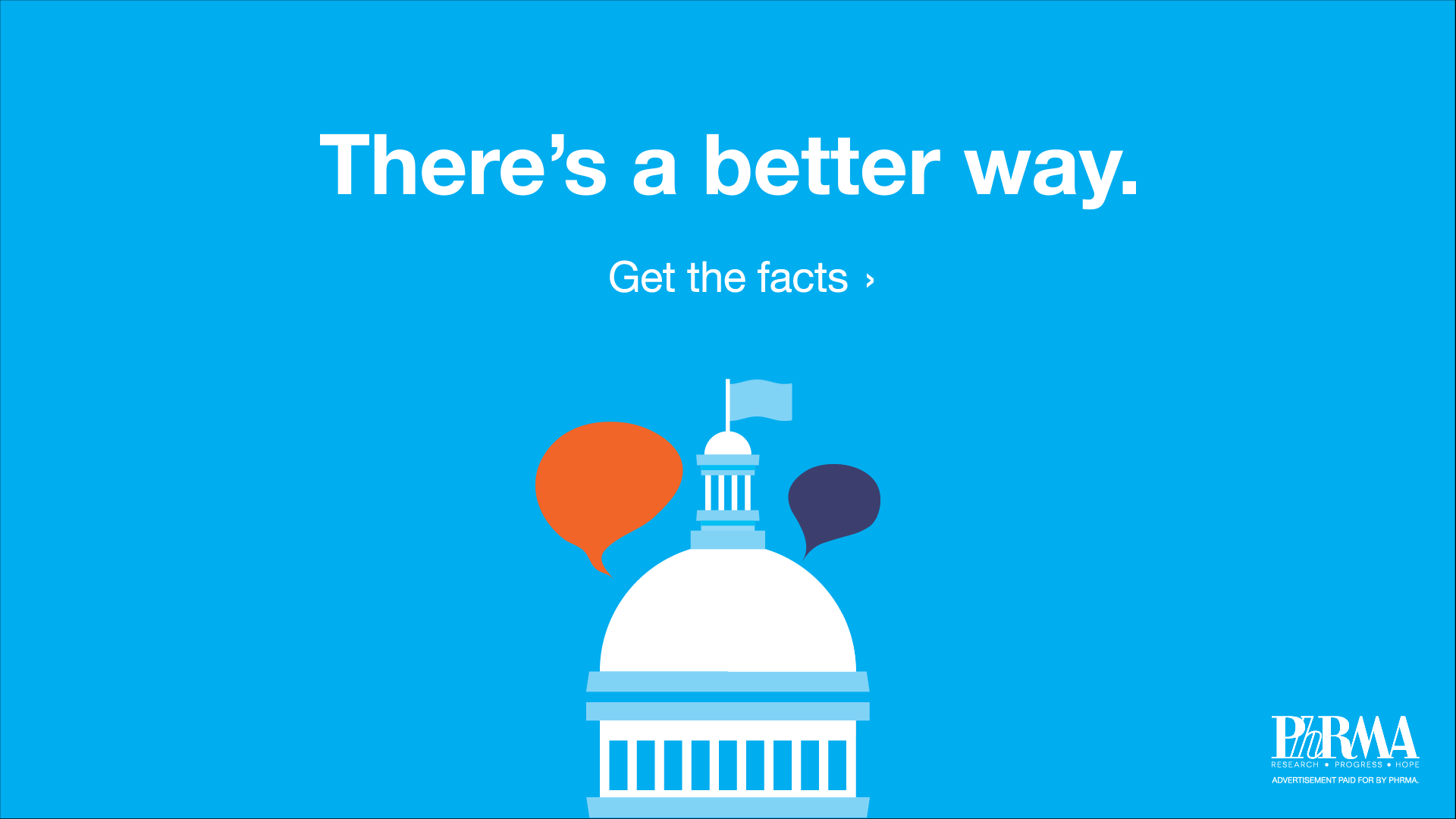| | | | | | | Presented By PhRMA | | | | Axios Vitals | | By Caitlin Owens ·Aug 23, 2021 | | Situational awareness: The FDA is expected to fully approve Pfizer's coronavirus vaccine as soon as today. Today's word count is 977, or a 4-minute read. | | | | | | 1 big thing: The pharmaceutical experts are getting ignored |  | | | Illustration: Annelise Capossela/Axios | | | | Experts who evaluate drugs are getting pushed into a corner, Axios' Bob Herman writes. The big picture: Months after the FDA approved a controversial Alzheimer's drug against the advice of an expert panel and its own statisticians, the Biden administration is pushing for nationwide coronavirus vaccine boosters before independent experts have weighed in. Driving the news: The Biden administration said booster doses for everyone would begin the week of Sept. 20, pending a "thorough review of the evidence" from the FDA and the CDC's Advisory Committee on Immunization Practices. Yes, but: The review has barely begun. - Pfizer just submitted its application for a third vaccine dose to the FDA, and Moderna has yet to do so.
- ACIP is rescheduling its Aug. 24 meeting that was going to cover boosters, meaning the panel likely won't make a final call until the end of the month at the earliest.
- There are no randomized trials evaluating the vaccines against the Delta variant. The most rigorous data available is from the CDC, and the agency has said the reasons behind the vaccines' lower effectiveness "cannot be determined" by those studies.
"The whole idea of following the science is that you let your science go first, and then you follow it," said Walid Gellad, a University of Pittsburgh physician and expert on health policy and pharmaceuticals. "The ramifications of FDA and ACIP saying no, for whatever reason, are much, much bigger now than they were before this press push." The bottom line: The whole point of expert drug committees is to help shape policy without political or industrial influence, but those committees are neutered if their recommendations are ignored or if decisions are made before they even have a chance to say anything. |     | | | | | | 2. We're all going to pay for the unvaccinated | | The spike in hospitalizations of unvaccinated adults — which are almost all preventable — cost the U.S. health system more than $2 billion in June and July, per a KFF analysis. Why it matters: Those costs are ultimately shouldered by all of us, not just those who remain unvaccinated and then get severely ill. By the numbers: A coronavirus hospitalization costs, on average, around $20,000. - Using CDC data, KFF estimated that there were around 37,000 preventable coronavirus hospitalizations among unvaccinated adults in June and another 76,000 in July.
Between the lines: Someone has to pay for these hospitalizations. Although COVID patients themselves may be on the hook for at least part of the bill, a large chunk of the tab will fall on either private or public insurers. - And health insurance isn't free — we all pay for it either through our premiums or our taxpayer dollars.
- "In addition to preventable direct monetary costs for treatment of unvaccinated people, re-opening of schools and economic recovery also suffers as increasing COVID-19 cases continue to put Americans at risk of avoidable severe illness and even death," the analysis writes.
The bottom line: We're all paying for the unvaccinated, and the big question is how large we'll let the bill become. |     | | | | | | 3. U.S. uninsurance rate unchanged |  | | | Illustration: Aïda Amer/Axios | | | | Despite layoffs, losses of income and employer-backed insurance during the pandemic, the uninsurance rate did not change between March 2019 and April 2021 thanks to increased enrollment in public coverage, according to a new report out today by the Urban Institute. But, but, but: More than one in 10 adults (11%) overall were still uninsured in April 2021, including nearly 20% of adults in states that have not expanded Medicaid, Axios' Marisa Fernandez writes. Why it matters: This lack of change in the insurance rate during the pandemic is unlike previous recessions, the report says. By the numbers: Public coverage gains occurred in states with and without Medicaid expansion. Still, the declines in employer-based insurance and increases in public coverage between 2019 and 2021 were mostly among adults under 65 with low and moderate incomes. - The number of adults younger than 65 with employer-sponsored insurance coverage dropped from 65% to 62.3%, or a drop of about 5.5 million adults, between March 2019 and April 2021.
- The uninsured rate in states without Medicaid expansion was more than double expansion states in April 2021, at about 18% and 8%, respectively.
|     | | | | | | A message from PhRMA | | People want choice and access to medicines in Medicare – not barriers | | |  | | | | In Washington, what politicians say and what they mean can be very different. To save money, some politicians are willing to sacrifice access to medicines in Medicare. This could make it harder for seniors and those with a disability to get the medicines they need. There's a better way. | | | | | | 4. College students on high COVID alert |  | | | Illustration: Rae Cook/Axios | | | | With the Delta variant surging, college students are not ready to resume campus life as normal, according to a new Generation Lab/Axios poll. Why it matters: For four-year students who enrolled in 2019-20, there is just one year remaining to enjoy something resembling a regular college experience, Axios' Neal Rothschild writes. Out of a list of activities that included going to an indoor party, dancing with others, and close conversations without masks, 55% of students considered none of the above to be safe. - 60% say restrictions should be imposed on large social gatherings.
- 45% say they would only feel comfortable at indoor gatherings where everyone had been vaccinated.
Driving the news: Already, tens of thousands of students across different education levels across the country are isolating after testing positive of being exposed to COVID-19. College students are also big fans of vaccine mandates — in many cases, bigger fans than their university administrators. - 73% say their school should implement a vaccine mandate for those on campus, while 52% say their schools are doing so.
- 86% say they are fully vaccinated, while 6% say they definitely won't get the shots.
Many staff and professors share the concerns about a return to campus. - "You're putting me in a petri dish for an hour and 15 minutes when I'm teaching," Youngstown State ethics professor Mark Vopat told Forbes.
|     | | | | | | 5. While you were weekending |  | | | Illustration: Aïda Amer/Axios | | | - An investigation by the New York Times dug into the negotiated rates published by hospitals complying with a new federal price transparency regulation.
- The Food and Drug Administration on Saturday urged people to stop taking ivermectin — a drug used to treat parasites in animals — to respond to or prevent the coronavirus.
- India's drug regulator on Friday granted emergency approval to the world's first DNA-based coronavirus vaccine.
|     | | | | | | A message from PhRMA | | People want choice and access to medicines in Medicare – not barriers | | |  | | | | In Washington, what politicians say and what they mean can be very different. To save money, some politicians are willing to sacrifice access to medicines in Medicare. This could make it harder for seniors and those with a disability to get the medicines they need. There's a better way. | | |  | | It'll help you deliver employee communications more effectively. | | | | | | Axios thanks our partners for supporting our newsletters. If you're interested in advertising, learn more here.
Sponsorship has no influence on editorial content. Axios, 3100 Clarendon Blvd, Suite 1300, Arlington VA 22201 | | | You received this email because you signed up for newsletters from Axios.
Change your preferences or unsubscribe here. | | | Was this email forwarded to you?
Sign up now to get Axios in your inbox. | | | | Follow Axios on social media:    | | | | | |








No comments:
Post a Comment